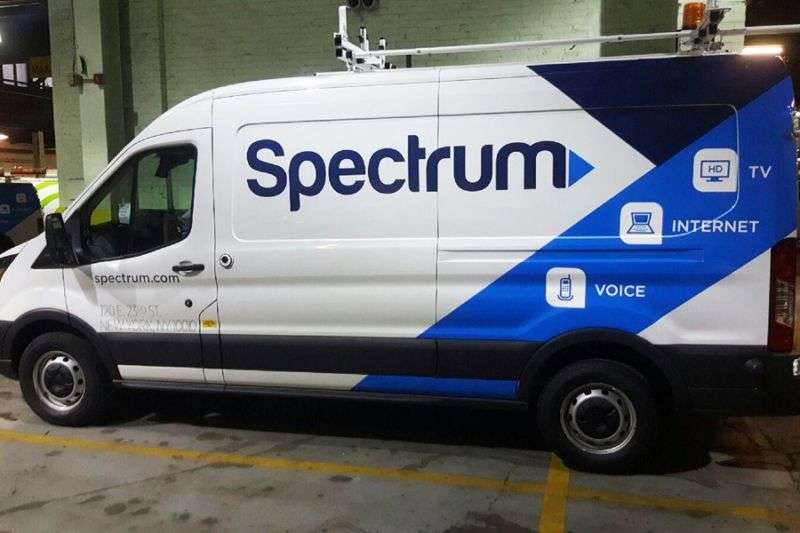
Charter raises sneaky “broadcast TV” fee for second time in four months

Charter Communications will raise its “broadcast TV” fee from $9.95 to $11.99 on March 1, only four months after the previous fee increase.
Charter and other cable companies say they charge broadcast TV fees to recoup the cost of paying broadcasters for the right to retransmit their signals over cable systems. But Charter doesn’t include the fee in its advertised rates, instead revealing the fee in the fine print, often giving customers bill shock when they learn that they have to pay more each month than expected.
Additionally, increases to the fee apply even to customers who agreed to deals that ostensibly lock in a specific monthly rate during a set period. In summary, Charter uses the broadcast TV fee to advertise lower rates than it actually charges and to raise prices on customers even before their promotional rates expire.
Charter previously raised the broadcast TV fee from $8.85 to $9.95 a month in November as part of a larger price increase for both cable TV and broadband services. (These price increases happened despite Charter lowering its spending on capital improvements to its cable network and services.)
The new broadcast TV fee increase to $11.99 coming on March 1 was reported last week by the Los Angeles Times, and Charter confirmed the change to Ars yesterday.
“It is accurate that the Broadcast TV Surcharge will increase to $11.99, effective March 1, across Spectrum markets,” a Charter spokesperson told Ars. “The charge continues to reflect the rapidly rising cost of local broadcast channels.”
Charter may face class-action suit
Charter could face a new class-action lawsuit over the price increases. The Hattis Law firm is asking Charter Spectrum customers who are upset about the fee to contact the firm with this online form. The law firm says:
Hattis Law is investigating complaints that Charter Spectrum charges a hidden and misleading ‘Broadcast TV Surcharge’ fee to its cable customers and repeatedly raises its rates on Time Warner [Cable] legacy customers. Spectrum just raised its ‘Broadcast TV Surcharge’ fee at the end of 2018 from $8.85 to $9.95 a month. Customers report that Spectrum fails to adequately disclose this fee, and then states or implies that the fee is a government-related charge. In reality, this fee is entirely made up and is simply a double-charge for the channels Spectrum already promised to provide in its advertised price.
Charter became the nation’s second-biggest cable company behind Comcast in 2016 when it bought Time Warner Cable. Hattis Law said it is also investigating reports from former Time Warner Cable customers that “fixed rates are not being honored despite Spectrum staff promising no increases.”
Hattis is also representing California residents in a class action against Comcast over its broadcast TV and regional sports network fees.
On the plus side for Charter customers, Charter doesn’t charge a regional sports network fee. Charter has 16.1 million residential cable TV customers and 23.6 million residential Internet customers.
Charter complains about US law
Charter’s website offers an explanation for why it does charge the broadcast fee:
As a direct result of local broadcast or “network-affiliated” TV stations in recent years dramatically increasing the rates to Charter Communications to distribute their signals to our customers, we’re forced to pass those charges on as a “Broadcast TV Surcharge.” These local TV signals were historically made available to us at no cost or low cost. However, in recent years the prices demanded by local broadcast TV stations have necessitated that we pass these costs on to customers.
Under US law, a broadcaster can choose to have a “must-carry” status, which forces cable operators to air its programming but prevents the broadcaster from demanding payment. Broadcast stations that don’t opt for must-carry status can demand carriage fees, with the risk of not being distributed by cable systems.
Charter’s FAQ on the matter says:
Broadcast TV stations distribute their signals over the air using free spectrum granted to them by the federal government. In effect, taxpayers are subsidizing the distribution of broadcast or “network-affiliated” TV signals. These same broadcast TV stations are then allowed by the government to charge for their signals, and if we don’t agree to pay, broadcasters can force us to drop their channels, thereby adversely impacting our customers. We’re in favor of changes to the law that created this situation, and if those changes are successful, we’ll remove these broadcast TV charges.
Still, the cost of buying programming is part of the standard cost of doing business for cable TV operators and is reflected in the rapidly rising prices that cable TV customers pay for basic service even before extra fees are factored in. Charter could make its point to the government about broadcast TV carriage rules without following its current practice of advertising one rate to customers and then charging another.
Disclosure: The Advance/Newhouse Partnership, which owns 13 percent of Charter, is part of Advance Publications. Advance Publications owns Condé Nast, which owns Ars Technica.




